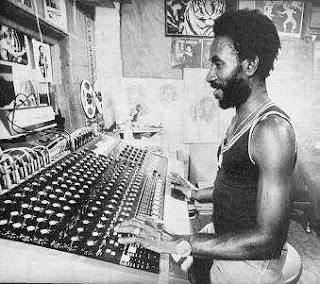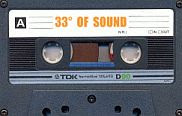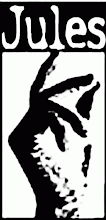 King Tubby
King TubbyKing Tubby's production work in the 1970s would see him become one of the best-known celebrities in Jamaica, and would generate interest in his production techniques from producers, sound engineers and musicians across the world. Tubby built on his considerable knowledge of electronics to repair, adapt and design his own studio equipment, which made use of a combination of old devices and new technologies to produce a studio capable of the precise, atmospheric sounds which would become Tubby's trademark. With a variety of effects units connected to his mixer, Tubby was able to 'play' the mixing desk like an instrument, bringing instruments and vocals in and out of the mix (literally 'dubbing' them) to create an entirely new genre known as dub music.
Using existing master tapes—his small studio in fact had no capacity to record session musicians—Tubby would re-tape or 'dub' the original after passing it through his 4 channel MCI mixing desk, twisting the songs into unexpected configurations which highlighted the heavy rhythms of their bass and drum parts with minute snatches of vocals, horns and Piano/Organ. These techniques mirrored the actions of the sound system selectors, who had long used EQ equipment to emphasise certain aspects of particular records, but Tubby was able to use his custom-built studio to take this technique into new areas, often transforming a hit song to the point where it was almost unrecognizable from its original. One unique aspect of his remixes or dubs was the result of creative manipulating of the built-in highpass filter on the MCI mixer he had bought from Dynamic Studios. The filter was controllable by a large knob—aka the 'big knob' -- which allowed Tubby to introduce a dramatic narrowing sweep of any signal, such as the horns, until the sound disappeared into a thin squeal.
Tubby engineered/remixed songs for Jamaica's top producers such as Lee Perry, Bunny Lee, Augustus Pablo and Vivian Jackson that featured artists such as Johnny Clarke, Cornell Campbell, Linval Thompson, Horace Andy, Big Joe, Delroy Wilson, Jah Stitch and many others. In 1973, he built a vocal booth at his studio so he could record vocal tracks onto the instrumental tapes brought to him by various producers. This process is known as 'voicing' in Jamaican recording parlance. It is unlikely that a complete discography of Tubby's production work could be created based on the number of labels, artists and producers with whom he worked, and subsequent repressings of these releases sometimes contained contradictory information. His name is credited on hundreds of b-side labels, with the possibility that many others were by his hand yet uncredited, due to similarities with his known work.
By the later part of the decade, though, King Tubby had mostly retired from music, still occasionally mixing dubs and tutoring a new generation of artists, including King Jammy and Scientist. In the 1980s he built a new, larger studio with increased capabilities, and focused on the management of his own labels, Firehouse, Waterhouse and Taurus, which released the work of Anthony Red Rose, Sugar Minott, Conroy Smith, King Everald and other popular musicians. He has been cited numerous times as influential to modern musicians including Animal Collective's Panda Bear (Noah Lennox) and The Mars Volta's Omar Rodriguez-Lopez.
King Tubby was shot and killed on February 6, 1989 by an unknown group of people outside his home in Duhaney Park, upon returning from a session at his Waterhouse studio. It is thought that the murder was probably an attempt at robbery.







